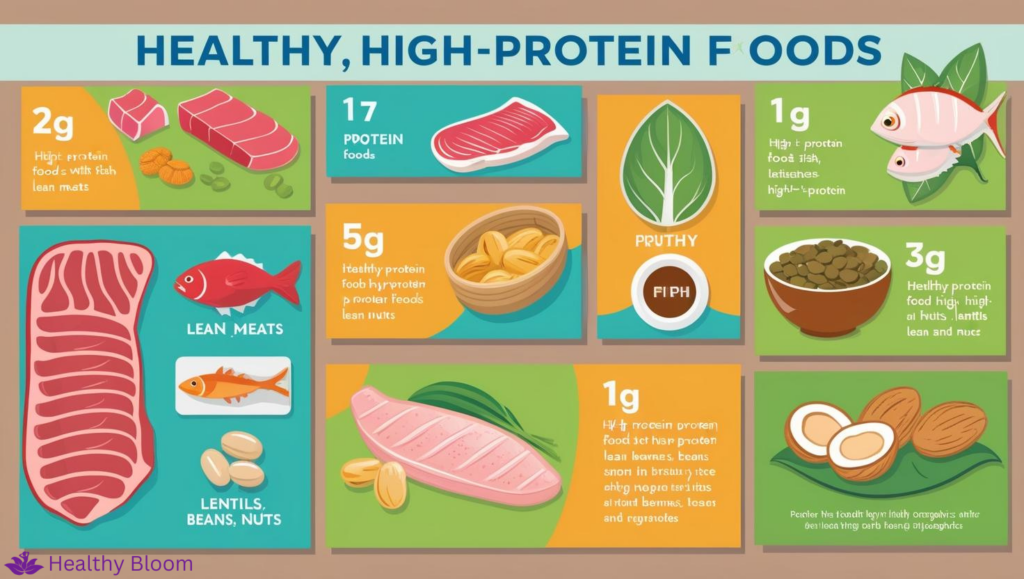
Are you tired of the over-hyped supplements flooding the market, promising miraculous results but often falling short of their claims? Look no further! In this article, we will dive into the world of fitness supplements, exposing the truth behind their marketing tactics and providing you with healthier alternatives for your fitness journey.
In today’s fitness industry, it’s common to come across a plethora of supplements claiming to be the ultimate solution for enhancing performance and achieving your desired physique. However, many of these supplements are over-hyped and unhealthy, packed with unnecessary ingredients and potentially harmful substances. Let’s explore the truth behind these supplements and discover healthier alternatives for fueling your workouts.
Table of Contents:
- The Problem with Over-Hyped Supplements
- Deceptive marketing claims and false promises
- Unhealthy ingredients and excessive dosages
- Lack of transparency in labelling and composition
- Dependency on supplements and unrealistic expectations
- Different Types of Supplements
- Pre-Workout Supplements
- What are pre-workout supplements?
- Pros and cons of pre-workout supplements
- What to look for in a good pre-workout supplement
- Protein Supplements
- The role of protein in fitness
- Types of protein supplements (whey, plant-based, casein)
- Pros and cons of protein supplements
- Choosing the right protein supplement for your needs
- Workout Energy Drinks
- What are workout energy drinks?
- Pros and cons of workout energy drinks
- Essential considerations when choosing energy drinks
- Pre-Workout Supplements
- Healthy Alternatives to Supplements
- Emphasizing nutrient-dense whole foods in your diet
- Staying hydrated with water and natural beverages
- Natural pre-workout boosters for energy
- Post-workout recovery foods to support muscle repair
- Essential Considerations for Good Supplements
- The importance of transparent ingredient listing
- Choosing supplements with high-quality ingredients
- Ensuring appropriate dosage based on scientific research
- The value of third-party testing and certifications
The Problem with Over-Hyped Supplements
Deceptive Marketing Claims
- Supplement manufacturers often make bold claims about their products, promising extraordinary results within a short period. However, it’s essential to approach these claims with scepticism and understand that there are no magical shortcuts to fitness.
Unhealthy Ingredients and Excessive Dosages
- Many over-hyped supplements contain excessive stimulants like caffeine or other potentially harmful substances. These high dosages can lead to adverse effects on your health and well-being.
Lack of Transparency in Labeling
- Some supplement companies may hide behind proprietary blends, using vague ingredient listings that make it challenging to determine the actual composition and dosage of the supplement.
Dependency and False Expectations
- Relying solely on supplements can create a dependency mindset, where individuals believe that they cannot achieve their fitness goals without these products. It’s crucial to remember that supplements should supplement, not replace, a healthy diet and exercise routine.
Different types of supplements
Pre-Workout Supplements
What are Pre-Workout Supplements?
Pre-workout supplements are specifically formulated products designed to enhance workout performance and energy levels. These supplements often contain ingredients like caffeine, beta-alanine, and creatine, which work together to provide a boost of energy and increase focus during exercise.
Pros and Cons of Pre-Workout Supplements
| Pros | Cons |
| Increased energy levels | Dependency on supplements |
| Improved focus and concentration | Potential side effects |
| Enhanced endurance | High caffeine content |
What to Look for in a Good Pre-Workout Supplement
When choosing a pre-workout supplement, it is crucial to consider factors such as quality ingredients, transparent labelling, reputable brands, and appropriate dosage. By selecting a reliable supplement, you can maximize the benefits while minimizing potential risks.
Protein Supplements
The Role of Protein in Fitness
Protein plays a vital role in muscle recovery, growth, and overall fitness. Protein supplements provide a convenient and efficient way to meet your daily protein requirements, especially for individuals engaging in intense workouts.
Types of Protein Supplements
There are various types of protein supplements available, including whey protein, plant-based protein, and casein protein. Each type has its unique characteristics and is suitable for different dietary preferences.
Pros and Cons of Protein Supplements
| Pros | Cons |
| Convenient source of protein | Costly |
| Aids muscle recovery and growth | Potential digestive issues |
| Provides muscle-building support | Not necessary for everyone |
Choosing the Right Protein Supplement
To select the right protein supplement, consider factors such as dietary restrictions, quality certifications, taste preferences, and personal goals. By finding the perfect fit, you can optimize your protein intake and support your fitness journey.
Workout Energy Drinks
What are Workout Energy Drinks?
Workout energy drinks are designed to provide an instant boost of energy before or during workouts. They typically contain ingredients such as caffeine, B vitamins, and amino acids, which help enhance performance and combat fatigue.
Pros and Cons of Workout Energy Drinks
| Pros | Cons |
| Instant energy boost | High sugar content |
| Convenient and portable | Potential dehydration |
| Variety of flavours | Dependency on energy drinks |
Essential Considerations for Good Supplements
While over-hyped supplements may dominate the market, there are still reputable options available that can support your fitness journey. When choosing a supplement, consider the following factors:
Transparent Ingredient Listing
- Look for supplements with transparent labelling, where the percentage of each ingredient is clearly stated. This transparency allows you to make informed decisions about what you’re putting into your body.
Quality Ingredients
- Ensure that the supplement contains high-quality ingredients that are safe and effective. Look for reputable brands that prioritize sourcing and manufacturing practices.
Appropriate Dosage
- Check that the supplement provides the right dosage of each ingredient. Dosages should be based on scientific research and recommended guidelines for optimal efficacy and safety.
Third-Party Testing and Certifications
- Choose supplements that undergo third-party testing for quality, purity, and accuracy. Look for certifications from organizations such as NSF International or Informed-Sport to ensure product integrity.
Healthy Alternatives to Supplements
While supplements can play a role in supporting your fitness goals, it’s important to remember that they are not essential. Here are some healthy alternatives to consider:

Nutrient-Dense Whole Foods
- Focus on consuming a well-rounded diet consisting of nutrient-dense whole foods. Incorporate lean proteins, complex carbohydrates, healthy fats, and a variety of fruits and vegetables to provide your body with the essential nutrients it needs.
Hydration with Water and Natural Beverages
- Stay hydrated with plain water or natural beverages such as herbal teas, infused water, or coconut water. These options provide hydration without added sugars or artificial ingredients found in many sports drinks.
Natural Pre-Workout Boosters
- Boost your energy before workouts with natural ingredients like caffeine from coffee or green tea, beetroot juice for improved endurance, or tart cherry juice for reducing muscle soreness.
Post-Workout Recovery Foods
- Opt for post-workout recovery foods like Greek yoghurt, berries, nuts, or a protein-rich smoothie to replenish nutrients and support muscle repair.
Conclusion
Navigating the world of fitness supplements can be challenging, given the prevalence of over-hyped and unhealthy options. By understanding the problems associated with these supplements and considering healthier alternatives, you can make informed choices that prioritize your long-term health and fitness goals. Remember, supplements should supplement a balanced lifestyle, not a substitute for it.
FAQs (Frequently Asked Questions)
- What percentage of ingredients should I look for in a good supplement?
- When choosing a supplement, look for transparency in labelling, where the percentage of each ingredient is clearly stated.
- Can I rely solely on supplements for my fitness goals?
- No, supplements should not replace a healthy diet and exercise routine. They should complement your lifestyle and provide additional support if necessary.
- What are some natural alternatives to supplements?
- Natural alternatives include nutrient-dense whole foods, hydration with water and natural beverages, and incorporating natural pre-workout boosters like coffee or green tea.
- Are there any risks associated with over-hyped supplements?
- Over-hyped supplements may contain unhealthy ingredients and excessive dosages, which can have adverse effects on your health. It’s essential to choose supplements wisely and prioritize your well-being.
- How can I ensure the quality of a supplement?
- Look for supplements that undergo third-party testing and hold certifications from reputable organisations like NSF International or Informed-Sport.
If you want energy before a workout, remember that sometimes a simple cup of coffee can be a great choice. Stay informed, make conscious choices, and enjoy your fitness journey with optimal energy and health.









